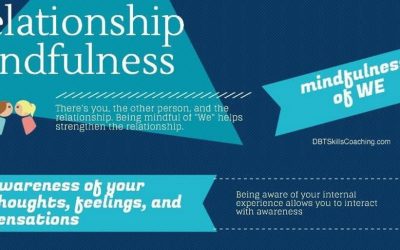|
Eating when you aren’t physically hungry can be so frustrating, in addition to being a problem for your health. You promise yourself you aren’t going to do it, and then you do. Again. Afterward, you’re miserably full and bloated and upset that you overate or binged yet again despite your determination to not do so. Overcoming emotional eating is very difficult and can be a constant challenge. Food is everywhere and tempts with immediate pleasure and relief. You can’t practice abstinence from food. It’s particularly difficult when you are at home all day with few of your outside pleasures. When you struggle with urges to run to the fridge, wait a moment or two. Use mindfulness to be in the moment and observe and describe what is happening. The pause is not about stopping you from enjoying another piece of chocolate cake, it’s about understanding the reason you are craving it. Maybe you aren’t sure when you are physically hungry and when it is emotional. Until you learn the physical signals of hunger again, you can ask yourself questions. If you are truly hungry, you’re willing to eat a high protein food like eggs or meat. When it’s emotional hunger you probably crave carbohydrates or sweets. Maybe you know you’re emotionally hungry rather than physically in need of nourishment. You still really want food. Accept that you can sit with the urge to eat and it will pass. You don’t need to satisfy that urge. Think about the long-term consequences and how emotional eating affects you. Choose to respect your body and take good care of yourself. Frame your choice in terms of the positives rather than depriving yourself. Awareness of the trigger for your urges is an important step in overcoming emotional eating. Here are some ideas to help you identify what is behind that emotional hunger. Knowing the reason you are eating will help you find a more effective coping strategy. 1. To Avoid Unpleasant Emotions. Sometimes the emotions you are avoiding can be more subtle or you don’t even notice them before you put food in your mouth. When I’m working and reach a point where I’m not sure what to do next, I often think of food. It’s not about hunger; it’s about getting rid of that anxiety of “What now?” I wasn’t even aware of this tiny moment between ending a task or a paragraph and eating until recently. Eating gives me something to be “doing” so I can stay in my comfort zone. Coping Suggestions Be mindful that you are experiencing an unpleasant sensation or emotion. Check that urge to get food–what’s behind it? Are you truly physically hungry? Practice tolerating the emotion. Emotions will pass. They are temporary. You can also practice other coping skills, such a talking it out with someone, writing your emotions, exercising, or distracting yourself. You might want to do an activity that is not compatible with eating such as taking a shower. 2. To End Boredom In those moments where there is “nothing to do” and there is no one to talk with, you may experience an aloneness that is uncomfortable or a boredom that is difficult to tolerate. Food can seem like the answer. It eases boredom and gives you some pleasure. Eating is something to do. Coping Suggestions Create a list of various activities that you can do when you can’t think of anything to do. Keep the list readily available so you can look at it easily. Make a commitment to try at least two activities before turning to food. 3. Out of Habit/Lack of Awareness Eating mindlessly, putting food in your mouth without being aware of the taste or how satisfied you are is a form of self-soothing. If you aren’t aware of your surroundings, your world, you’re not present in your life. Eating mindlessly may be a way of numbing so you aren’t present. Eating mindlessly may be a habit as well. You may “veg-out” in the same chair each night, watching various television shows, and not even be aware that you aren’t truly present. Maybe you don’t want to be present. Coping Suggestions Practice mindfulness to be more present. You may find that you don’t enjoy your routines and need to change them. Perhaps you find that you need a different way to completely slow your mind and relax, so you aren’t thinking about challenges and to do lists. 4. To Squelch Urgency You think about the chocolate pie that is waiting in the kitchen. You love the taste of it and want more. The difference is that your mind wants more now. You have a sense of urgency to eat it. Coping Suggestions Practice delay. Tell yourself that you can have the pie tomorrow or in a few hours. Remind yourself that the pie will be good later. The idea is to learn that having urges for something doesn’t mean you have to act on them and learning to delay is a skill. 5. Fatigue Craving food often occurs when you are tired, particularly the burned-out kind of tired. When you’ve been working on taxes for hours, you may not be physically tired but you are tired of concentrating and focusing your attention on an unpleasant task. Food can seem like the answer. Coping Suggestions When you are tired, awareness can help you make a more effective choice. You might take a nap, lay by the pool, or play a game. Doing an activity very different from the one that led to the fatigue often offers the best relief. 6. To Create Pleasure Sometimes food is the easiest way to create a pleasurable experience or add to a celebration. Coping Suggestions Practice being openly joyful when you have celebrations. When you express the emotion directly and openly you may have less need to create a physical experience of pleasure with food. If food is your only pleasure, then find ways to bring small joys into your life. Joys that use the senses may be the most helpful, such as rocking a baby or petting a dog. |
Gratitude
When you’re stressed, as many of us are now, gratitude is probably not on your list. Grateful for Aunt Mary who criticizes the way you dress? For your cousin who loves to tell you how great his life is going? For the difficult weather that





0 Comments